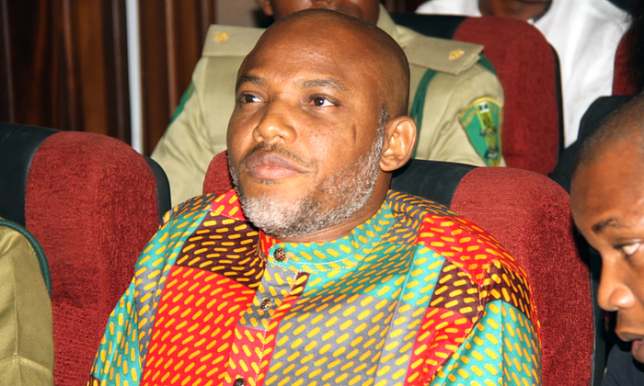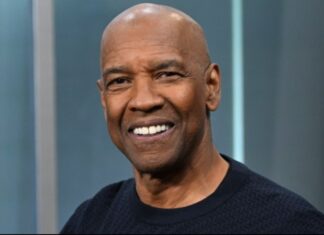By AdagboOnoja
In his latest book, We Are All Biafrans, ChidoOnumah offers a very powerful discourse of Nigeria by imposing on the observable claims of marginalisation by every other group against the Nigerian state the metaphor of Biafranism. Every other group is selling that narrative about its own place in the Nigerian set-up. In other words, they are doing what the Igbo took to the heights in the late 1960s by declaring sovereignty, a move to which the Nigerian state responded by declaring a police action. The rest is now history.
‘Biafran’ in that title is thus a loaded metaphor in the hands of the author, an unrepentant advocate of the re-negotiation of Nigeria but not the secessionist which some readers imagine him to be, either because of the coincidence of his book with the renewed agitation for Biafra or from what the title of his book, particularly the word Biafra, has come to denote in popular consciousness in Nigeria.
Of course, the agitation of the Indigenous People of Biafra (IPOB) makes it the second time the Igbo cultural identity would be associated with contesting the Nigerian state, although some people argue that this time around, it is the Biafranism of the ‘Generation Text’. Members of ‘Generation Text’ have no idea of the horrors of the 1960s.
Whether the ‘Generation Text’ explanation of this phase of Igbo irredentism is true or not, it still makes the Igbo the most Biafranist group in Nigeria. That should throw up the ‘why?’. What might be there in the Igbo gene to account for the dialectics of Igboness in Nigeria: the unchallenged warriors of the Nigerian space in territorial terms but the quickest to get sucked into homeland insularity at the slightest provocation? How could so educated, so successful in business and so globally mobile and established an ethnic group misread the Nigerian text every now and then?
It is a question that would always be open to debate. Three major explanations remain most often the case. Taken in no particular order, there is the argument that the Igbo are reacting to what they perceive as punishment for challenging the Nigerian state. There could be a different list now, but around the late 1990s, those who were very educated in this would articulate the case of systematic marginalisation by saying, for example, that the Igbo are the exception in terms of a city which when shut down amounts to shutting down Nigeria. That is, they have no Lagos, Kano or PortHarcourt which corresponds to the SouthWest/Yoruba, North/Hausa-Fulani and South South.
Those who argue this agree that Onitsha is an emporium but would say that Onitsha does not have the strategic value of Kaduna or Oshogbo. There is no export free zone, airport, power plant, refinery or educational institution of stature in the East, it is pointed out. And they say that it was the anger over this that certain institutions such as the Institute of Management Technology (IMT), Enugu, and even NnamdiAzikiwe University (NAU), Awka, were built. With respect to siting of industries, there is a strong feeling that the now moribund Aluminum Smelter Company at Ikot-Abasi was originally earmarked for somewhere in the East. And that it is the powers-that-be that removed it. And then the biggest of the sense of marginalisation: Igbo having five states. As far as this is concerned in the popular Igbo consciousness, population and landmass can go to hell.
As with perceptions, these claims do not have to be empirically verifiable to get an Igboman worked up and ready to swear marginalisation. In social life, what is perceived is what moves men to action. As such, very few are interested in linking claims of marginalisation to its plausible contexts. Of course, the war is an explanation. The historical tendency to ‘punish’ those who took up arms against the state cannot be dismissed, but so also can it not be dismissed that the same Nigeria made room for an Igboman to become the vice president under a gentle president and a very organised party in terms of sharing of projects.
Recall that when the Yoruba complained in 1981 that nothing was going to them, AdisaAkinloye, Richard Akinjide and other members of the regional caucus put them to task by calling a news conference and disclosing all the projects and appointments that had accrued to that region. So, what might have happened to the Igbo under the defunct National Party of Nigeria (NPN)?
The second thesis says that the Igbo are stuck with a collective self-understanding whose non-realisation makes them angry with Nigeria. No one is sure what that could be. Contributors point to the discourse of the Igbo as the Jews of Africa. The notion of ‘Zik of Africa’ is supposed to capture this dream of the Igbo being the most industrious of the lot and, by implication, those who would be the most prosperous as a collectivity.
Theories are never correct or incorrect as such because theories could pull surprises in time and space. As such, we might still have to wait for a more serious study of this thesis as to whether to dismiss it or not. But one question that it would attract is how one ethnic group in any country in Africa could, in and of itself, break out of the iron curtain of under-development enveloping the entire continent, a continent which is basically still the playground of the powerful?
Lastly, there is the argument that explains why the Igbo are still Biafrans in the Igbo never having run an empire. In an empire, you are either the conquered or the conqueror. Whichever one it is requires knowledge of the management of power. That is, knowledge of how to ensure that the conquered remains in acceptance of their reality or, if you are the conquered, then the knowledge of how to organise resistance, negotiate accommodation on some issues and fight your way on others. Products of empires are, therefore, assumed to be more adept in such attributes. In other words, it is not required that an ethnic group must have run an empire before the colonialists came around, but empire teaches a lot about the complexity of power, its negotiation and its consolidation.
Empire is about what the wise Africanist professor of power would call the layers of the onion. The ‘layers of the onion’ analysis tasks the power operator to look into each layer of the larger entity in contestation. It could reveal what the grand concepts can never reveal. The argument here is, the Igbo who have always lived as republicans lack the patience of their empire-minded co-operators on the Nigerian scene – the Yoruba, the Bini, the Kanuri, the Hausa-Fulani, the Jukunawa and what have you. Unlike the others, the Igbo have never come under the authority of any other group until the colonial encounter.
In Achebe’s Umofia (Things Fall Apart), every man was a sovereign. He needed the solidarity of the community, age grades and circle of friends, but he was a self-referent player in each of those networks, not a non-person in their dynamics. In other words, the past might be weighing heavily on the present for the Igbo in Nigerian politics.
The point has been made about how theories are neither correct nor wrong as such because the theory that is discredited by the evidence of today could provide the most powerful explanation by the evidence of tomorrow. There is, therefore, nothing to quarrel about in respect of each of these three theories regarding current Igbo return to Biafranism. The claim of neglect might be easier for people to grasp, although that could equally be the weakest explanation.
The real question would seem to be how it happened that no force, no tendency and no stream of consciousness in Igboland could enforce a binding narrative of the perceived situation of the Igbo and impose such on national politics? The Igbo are not too weak in the politics of discourse and by which it could have made its narrative to be heard globally. Why an IPOB strategy and the associated risk of deepening the perception that the Igbo cannot be cured of the Biafran virus?
Perhaps, there is a generational challenge here. It is possible that the time has come for the ChidoOnumahs to take up these issues at the level of the language game. This is not to overthrow the old guard, but to enrich the struggle they have waged so far. It is a challenge that arises not for just our intellectual workers and activists of Igbo origin, but everyone within the Onumah generational bracket because Nigeria itself is in a dangerous vacuum in terms of a discourse of the country that can move the average Nigerian.
Imagine an Arab Spring type revolt in Nigeria today. It would be nothing but pure anarchy because there is no referent narrative that would guide it and it could degenerate quickly into aimless bloodshed rather than a purposive exercise towards the realisation of the slogan, ‘Another Nigeria is Possible’.
*Onoja, a journalist, wrote in from Abuja.













